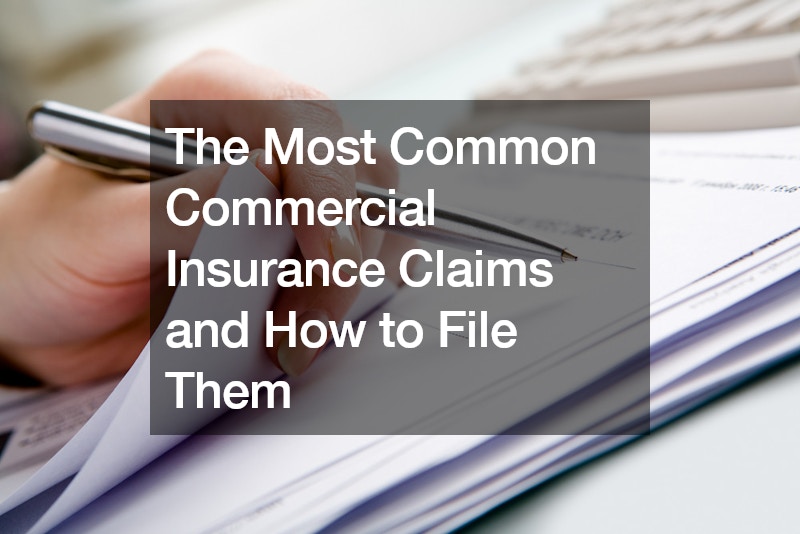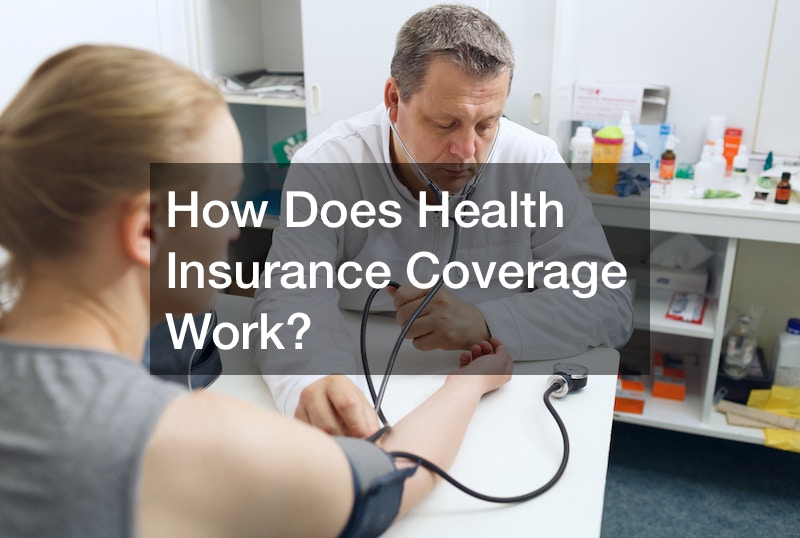
Introduction
Navigating the world of business insurance can be a complex process, especially for companies that fall into higher risk categories. High risk commercial insurance is designed to protect businesses that face a greater potential for losses, whether due to the nature of their industry, location, or operations. For many businesses, especially those involved in industries that require heavy machinery, hazardous environments, or frequent public interaction, standard insurance may not be enough to cover the variety of potential liabilities they encounter. Understanding whether your business should consider high risk commercial insurance involves evaluating several factors, including your operational risks, the potential for lawsuits, and the overall impact of unforeseen disasters. It is essential to assess whether the increased cost of high risk coverage is justified by the added protection it provides.
Certain industries, such as construction, logistics, and manufacturing, are more likely to require high risk commercial insurance due to the hazardous conditions or complex regulatory environments they operate in. Additionally, businesses that deal with valuable equipment, like used trailers or other heavy-duty machinery, may find that traditional insurance policies do not provide sufficient coverage. These companies need to take a deeper look at the specific risks they face to ensure they are adequately protected. Without the right level of coverage, a single accident or disaster could lead to financial ruin. High risk commercial insurance offers peace of mind, allowing business owners to focus on growth and daily operations without the constant worry of uncovered liabilities.
Understanding High Risk Commercial Insurance
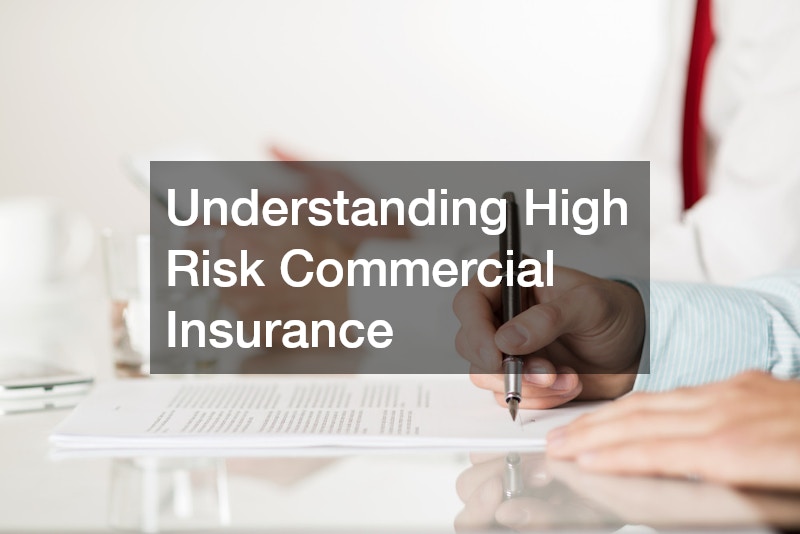
High risk commercial insurance is a specialized type of coverage designed for businesses that face heightened risk factors. These risks can come from the type of work being done, the materials used, or even the scale of operations. Unlike standard insurance policies, high risk commercial insurance takes into account the increased likelihood of accidents, damage, or legal claims, which could result in significant financial losses. Business owners operating in industries such as construction, transportation, or energy need to carefully assess their coverage needs to protect themselves from these unique hazards. The right insurance policy can serve as a safety net, preventing potentially catastrophic outcomes in the event of a major accident or lawsuit.
For example, a company that buys and sells used trailers for transportation would need to consider high risk commercial insurance. Trailers often carry heavy, valuable cargo, and any damages during transit could result in costly legal claims. Furthermore, the potential for accidents while transporting goods adds another layer of risk. In such cases, a traditional commercial insurance policy may not provide adequate coverage for the complex liabilities involved. High risk commercial insurance is essential to safeguard businesses in these industries, ensuring they are covered for the specific risks they face on a daily basis.
Assessing Your Business’s Risk Factors
When determining whether your business needs high risk commercial insurance, the first step is assessing the specific risks your company faces. Some industries are inherently riskier than others, with hazards ranging from equipment failures and workplace accidents to environmental damage and legal challenges. Companies in sectors like construction, manufacturing, and logistics often face higher risks due to the nature of their operations. The higher the risk of injury, property damage, or lawsuits, the more likely it is that your business will benefit from high risk commercial insurance. It’s important to evaluate not only the direct risks associated with your business but also any indirect risks, such as supply chain interruptions or regulatory changes, that could impact your operations.
Take, for instance, a grader blade manufacturing company, which produces specialized equipment for construction and infrastructure projects. The process of manufacturing these blades involves heavy machinery, precision work, and often dangerous materials, creating multiple points of potential risk. From the danger of workplace accidents to the liability associated with defective products, this type of business would greatly benefit from high risk commercial insurance. The policy would cover everything from employee injuries to lawsuits from clients, providing financial protection and helping to keep operations running smoothly in the event of an incident.
Exploring Coverage Options for High Risk Industries

When operating in high risk industries, it’s crucial to explore all available coverage options under high risk commercial insurance. Businesses involved in construction, manufacturing, or transportation, for instance, face numerous challenges that could result in financial loss or legal action. Whether it’s due to hazardous working conditions, potential environmental impacts, or the high value of assets involved, high risk industries require tailored insurance solutions that go beyond what standard policies can offer. These policies often include coverage for property damage, legal liabilities, workers’ compensation, and other specific risks, helping to protect businesses from costly lawsuits or unexpected disasters. Selecting the right coverage is vital to ensuring that your company’s specific needs are met.
Consider a company specializing in under deck drainage systems. This type of business often works in challenging environments, installing drainage systems beneath elevated decks to prevent water damage. Due to the complexity and potential risks involved in such projects, including possible property damage or system failure, having adequate high risk commercial insurance is essential. Without the right coverage, a company could face expensive legal claims if something goes wrong, such as faulty installation leading to flooding or damage to the property. With the appropriate high risk policy, the company can ensure it is protected against these potential setbacks, safeguarding its financial future.
Weighing the Costs and Benefits of High Risk Insurance
The decision to invest in high risk commercial insurance requires businesses to carefully weigh the costs against the benefits. High risk insurance policies tend to be more expensive due to the increased likelihood of claims, but they offer invaluable protection for businesses that face elevated risks. Without this coverage, a business may be exposed to devastating financial losses in the event of a disaster, lawsuit, or major accident. While the premiums may seem high, the long-term benefits of having comprehensive coverage far outweigh the risks of going without. Business owners must evaluate their specific vulnerabilities and consider the peace of mind that comes with knowing they are fully protected.
For example, a commercial elevator service company faces significant risks due to the technical and dangerous nature of their work. Elevators are complex systems, and any malfunction could result in serious accidents or injuries, leading to lawsuits or costly repairs. The company’s high risk commercial insurance would cover potential liabilities, from employee injuries while repairing elevators to property damage claims from clients. Although the premiums may be higher, the protection offered ensures that the business can operate without the constant fear of financial ruin from unforeseen accidents, making the investment in high risk insurance a worthwhile decision.
Protecting Against Lawsuits and Legal Risks
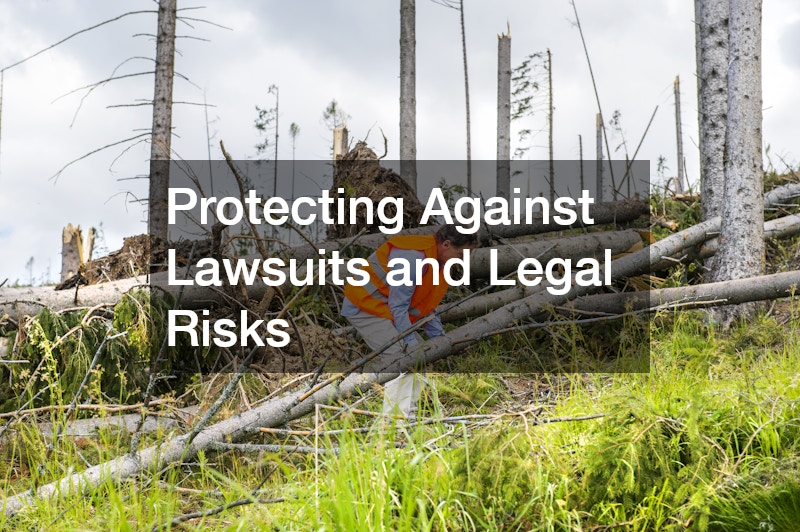
One of the most important aspects of high risk commercial insurance is its ability to protect businesses from lawsuits and other legal risks. Lawsuits can arise from a variety of situations, including accidents, faulty products, or employee injuries, and they can quickly lead to significant financial burdens. High risk commercial insurance policies are designed to provide coverage for legal defense costs, settlements, and judgments, which can help prevent a business from going under due to a costly lawsuit. For businesses operating in industries where the risk of legal action is higher, this protection is absolutely essential.
Take semi truck repair shops, for instance. These businesses work with large, expensive vehicles that are essential to their clients’ operations. If a repair is not done properly, it could lead to accidents or costly damage, resulting in potential lawsuits from customers. In such cases, high risk commercial insurance would help cover legal costs, protecting the shop from financial ruin. Without this coverage, even a single lawsuit could be enough to severely impact or even close down the business. Having high risk insurance ensures that the company can focus on its operations without the constant worry of potential legal threats.
Understanding Industry-Specific Risks in High Risk Insurance
Industry-specific risks play a major role in determining the type of high risk commercial insurance a business needs. Certain industries are inherently more dangerous or prone to accidents, leading to higher premiums but also a greater necessity for comprehensive coverage. In construction, manufacturing, and heavy equipment industries, for example, businesses must consider the specific risks they face daily. Whether it’s the use of hazardous materials, the danger of heavy machinery, or the potential for costly errors, these risks must be mitigated through tailored insurance policies that cover accidents, damages, and lawsuits. High risk commercial insurance helps protect businesses from devastating financial losses that could arise from these industry-specific dangers.
For instance, companies that work with local composite metal decking in construction face risks related to material handling, installation, and structural integrity. Improper handling or installation of composite decking could lead to serious accidents or property damage. A business involved in such projects needs specialized high risk insurance to protect against claims related to construction defects, employee injuries, or even environmental hazards. The high risk commercial insurance policy can be customized to include coverage specific to the materials and processes involved, ensuring that the company is safeguarded against unexpected setbacks.
Why High Risk Insurance Is Essential for Operational Continuity
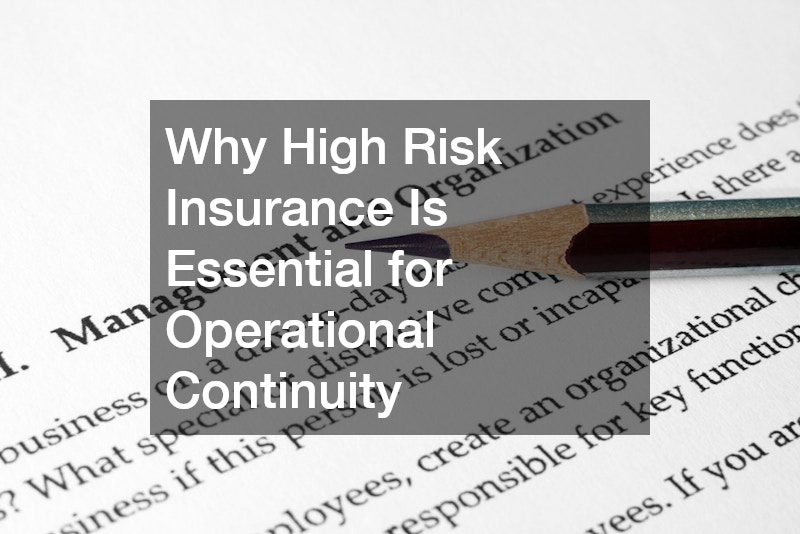
Maintaining operational continuity in a high-risk industry requires thoughtful planning and preparation. One key aspect of this planning is investing in high risk commercial insurance to protect the business from the unexpected. Disruptions caused by lawsuits, accidents, or even natural disasters can lead to severe financial strain, making it difficult for a business to continue its day-to-day operations. High risk insurance ensures that when issues arise, the business can recover quickly without losing significant time or money. It provides the resources needed to address claims, make necessary repairs, or cover legal expenses, all of which are crucial to keeping the business running smoothly during turbulent times.
Consider a scenario involving a company offering services like semi truck repair shops. If a serious accident occurs due to a faulty repair, the resulting lawsuit could halt the company’s operations for months. Without high risk commercial insurance, this business might struggle to handle legal fees, repair costs, and damages, potentially leading to closure. With the right insurance coverage in place, however, the company can navigate the situation, make necessary changes, and continue operating without major financial losses, ensuring long-term stability.
The Role of Liability Coverage in High Risk Insurance
Liability coverage is one of the most important components of high risk commercial insurance. Businesses exposed to higher levels of risk are more likely to face lawsuits related to accidents, negligence, or errors in service. Liability insurance protects businesses by covering legal costs, settlements, and other financial obligations that arise from claims against the company. Without adequate liability coverage, a business could be forced to pay out of pocket for expensive lawsuits, which can drain resources and jeopardize the company’s financial future. For industries that face frequent legal threats, such as construction or manufacturing, liability insurance is a vital aspect of their high risk insurance strategy.
A business specializing in emergency oil delivery, for instance, operates in a high-risk environment where timely service is crucial. If a delayed or incorrect delivery leads to significant damage or losses for a client, the business could face a lawsuit for negligence. High risk commercial insurance with comprehensive liability coverage would protect the business from these legal challenges, ensuring that it doesn’t bear the full financial burden of a claim. This type of protection is critical for companies offering specialized services, where even minor errors can result in large financial losses.
Assessing Property Damage Risk and Insurance Requirements
Property damage is another significant risk that businesses in high-risk industries must prepare for. Whether due to accidents, natural disasters, or operational mishaps, property damage can result in substantial financial losses. High risk commercial insurance policies often include coverage for property damage, ensuring that a business can repair or replace damaged assets without suffering major financial setbacks. Having property damage coverage as part of a high risk policy can make all the difference when a company faces unexpected incidents that could otherwise cripple its operations.
For instance, businesses working with lok rib panel roofing services often face the risk of property damage during installation or from severe weather conditions. A poorly installed roof can lead to significant water damage or structural issues, impacting both the client and the roofing contractor. High risk commercial insurance that includes property damage coverage helps protect the contractor from costly repairs or replacement expenses, allowing them to address the situation swiftly and without endangering their financial health.
Customizing Your High Risk Insurance Policy for Complete Coverage
One of the greatest advantages of high risk commercial insurance is its flexibility. Businesses can work with insurers to customize their policies to meet their unique needs. Depending on the industry, location, and specific risks faced by the business, insurance providers can tailor coverage to include exactly what is needed to protect against potential losses. Whether it’s liability coverage, property damage, or specialized add-ons, customizing a high risk policy ensures that no gaps exist in the protection of the business. This approach provides peace of mind and financial security, no matter how challenging or unpredictable the business environment may be.
For companies that deal with heavy equipment or offer specialized services, like fork truck for sale businesses, having a customized high risk insurance policy is critical. Such businesses face unique risks, from accidents involving heavy machinery to damages during transportation. By working with an insurance provider to create a tailored policy, the company can ensure it has adequate coverage for all potential threats, reducing the chance of financial disaster and allowing it to focus on growth and operational success.
Conclusion: Securing the Future With High Risk Commercial Insurance
In high-risk industries, the cost of ignoring comprehensive insurance coverage can be devastating. Whether a business faces frequent accidents, property damage, or liability concerns, high risk commercial insurance serves as a safeguard against the unpredictable nature of these sectors. By carefully assessing the specific risks tied to their operations, businesses can work with insurers to create policies that provide robust protection and financial security. Not only does this allow a business to thrive in challenging environments, but it also ensures long-term operational continuity and success.
Businesses like those involved in memorial headstones manufacturing, for instance, must account for various risks, from equipment malfunctions to environmental hazards. High risk commercial insurance offers a lifeline, providing coverage for potential liabilities and damages, and enabling the company to navigate difficulties with confidence. No matter the industry, investing in high risk commercial insurance is a crucial step for any business that wants to safeguard its future and operate without the constant threat of financial loss.


